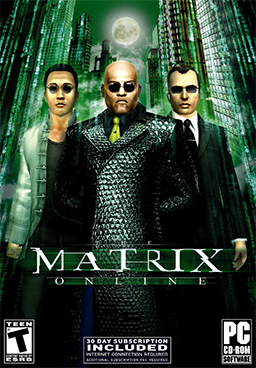 They say time is like a wheel, and that if you follow it for long enough you’ll get back to where you started. Sometimes it seems like the wheel has a broken axle, and that time isn’t moving at all: yesterday is the same as today, which is the same as tomorrow.
They say time is like a wheel, and that if you follow it for long enough you’ll get back to where you started. Sometimes it seems like the wheel has a broken axle, and that time isn’t moving at all: yesterday is the same as today, which is the same as tomorrow.
In the 20s, an Italian musclehead called Charles Atlas started selling a muscle building course. “What’s my job? I turn wimps into men!” His comic ads were in every newspaper – a dweeb gets sand kicked in his face by a bully, who calls him scrawny and steals his girl. Said dweeb then invests in Charles Atlas’s magic muscle course, bulks up, returns to the beach, KO’s the bully, and gets his (somewhat used) girlfriend back.
Atlas’s product (“Dynamic Tension”) was a few flimsy sheets showing you how to do isometric holds and static push-ups and so forth. Slightly useful for improving your cardiovascular system, close to useless for building muscle. Did Atlas himself use Dynamic Tension to build his physique? No. He lifted weights. But he knew there was no money to be made in selling barbells and dumbbells.
Atlas was given to calling himself “the world’s most perfectly developed man” which was not a truth claim but a title. In the 1920s Atlas was the winner of a bodybuilding contest in New York (defeating a motley bunch of piano movers and beer hall bouncers in the process). The contest was a financial failure, and the promoter did not host it again. Since nobody could win the title from Atlas, even when he was a frail geriatric he was still technically “the world’s most perfectly developed man”.
In the sixties there was a similar scam aimed at women called the “Mark Eden Bust Developer”, which purported to increase one’s breast size through exercises. These “exercises” took about 22 hours per week. A guy called Arthur Jones tracked down the creator of this system and asked how he’d arrived at that number. His reply was “Well, you and I both know that a few minutes of such exercise a week will produce all of the results that are possible; but when we told women that, we were getting requests for a refund from about forty percent of the customers. But, since we changed the instructions, we are now getting requests for a refund from only about two percent of the customers.”
Back in the bodybuilding world, a pair of Jewish entrepreneurs called the Weider brothers were climbing to ascendancy (Joe Weider was the husband of legendary pinup queen Betty Brosmer, as well as the man who brought Arnold Schwarzenegger to America). Other people might debate whether they were outright crooks or brilliant entrepreneurs – I think they were both at the same time.
Joe Weider wanted everyone to think that he was a muscular superhunk under his cable-knit sweater, and…er…appearances were against him. So he took a sculpture of a bodybuilder (Robby Robinson), and literally replaced Robby’s head with his own. Meanwhile, Ben Weider tried to give their business a scientific facade by talking about the “Weider Research Clinic”, where supposedly every bodybuilding discovery worth knowing was made. It’s well documented that no such place exists. Bob Gadja once told a funny story about visiting the Weider’s headquarters, seeing a door marked “Weider Research Clinic”, and opening the door. It was a broom closet.
Thankfully nobody falls for these scams any more. Anyone want a 0 calorie energy drink?
No Comments »
 When you judge a book by its cover, you’ve got to be open to the chance of a mistrial. Phyl-Undhu’s title made me think it would be another attempt to stick electrodes on Lovecraft’s corpse and make him jump and dance for a few moments. Instead I got an extremely dense, detailed and scary story, with an excellent ending.
When you judge a book by its cover, you’ve got to be open to the chance of a mistrial. Phyl-Undhu’s title made me think it would be another attempt to stick electrodes on Lovecraft’s corpse and make him jump and dance for a few moments. Instead I got an extremely dense, detailed and scary story, with an excellent ending.
The story’s about a virtual-reality videogame that seems to take over peoples’ lives. Not through hypnosis or any sort of conventional addiction, but by being fascinating, confusing, and unsolvable.
None of the characters are sure how to beat it, they only know that they have to find “Phyl-Undhu”. The game is described as a massive environment that – like Stephen King’s Midworld – is both alien and very familiar. I liked Land’s invocation of apocalyptic size. That’s another nice touch often missed in horror stories about electronic games – a huge game like Skyrim can sometimes trick you into thinking it goes on forever, and that idea has a certain eerie power.
Playing the game occupies one corner of the story. The other corners are filled with philosophical fluff from Nick Land’s head, such as transhumanity, solipsism, and the “Fermi Paradox” (which questions why, in a universe replete with life’s building blocks, we’ve never seen signs of it anywhere except Earth). Many of these elements play into the larger story about the game, but in a way that doesn’t slow the momentum or drag things down.
The ending came and went, and it took a few moments for the full implications to sink in. I won’t spoil it, but it’s very, very good. Nick Land understands that a story’s end should NOT be the end, that it should take up residence in your mind and keep you thinking long after the pages go quiet.
I’m not very familiar with Nick Land, only knowing him as an “alt philosophy” person in the same category as Mencius Moldbug and Nick Bostrom. This is his first overt fictional work (as far as I know), although nothing he does can really be classified easily. In this case “futuristic philosophical horror” seems the closest fit, but it’s still a bad one. You’ll have to read for yourself.
No Comments »
 It’s times like these that I remember The Matrix Online.
It’s times like these that I remember The Matrix Online.
Back in the day, The Matrix was the shit. Yes, nothing says high quality like fecal matter with a definite article, but the movie lives up to hype. Say what you will about Keanu’s acting, or the apparent plot holes (how does Cypher get into the Matrix, why can’t Agent Smith “hack” more bullets into his gun, etc), the Matrix kicks ass and induces excitement deep in my pyloric valve.
The trouble with success is that it can leave you unprepared for subsequent failure. Four years later, we were watching confused critics struggle with the overlong (and unsatisfying) The Matrix Reloaded. Most of them missed the boat with the first movie, and they were anxious not to seem like out-of-touch old fogeys a second time. The glowing reviews for a mediocre sequel must have struck a chord of “we can do no wrong” in the Wachowskis’ heads, and so they plunged ahead with some very questionable media ventures.
The third, final, and shit awful Matrix movie left a lot plot points unexplained, but that was okay, we were told, because the story would continue with The Matrix Online PC MMO. It probably seemed like genius at the time. You’d play in an interactive world of “red-pilled” humans, with the story of Zion and Machine City and the Merovingian continuing on around you – and you could be an active participant, if you liked. It was going to be the wave of the future, films and videogames becoming an inseparable braid.
It launched. It flopped. And five years later, it was cancelled. At a time where World of Warcraft had ten million subscribers, TMO’s player base had dwindled to just five hundred active accounts. What went wrong?
1. They got Monolith Productions to create the game. I’ve been playing Monolith games since 1997 (not continuously, there were some bathroom breaks), and I speak with authority when I say they’re the most inconsistent company on earth. Blood is good. Claw is good. Get Medieval is bad. Shogo is bad. Blood II is bad. Gruntz is good. Sanity is bad. No-One Lives Forever is good. Aliens versus Predator 2 is good. No One Lives Forever II is bad. Tron 2.0 is good. Contract JACK is bad. FEAR is good. Condemned is bad. And so on. It’s like someone’s tossing a coin.
2. The Matrix Online, by most accounts, falls into the bad column. I haven’t played it, but people tell me that it’s like a spiritual descendant of the two sequel movies – glossy, superficially well put together, but cold, unfocused, and unengaging. Apparently the game had bugs right until the very end. It’s normal for MMOs to launch with bugs. But TMO still looked like an alpha, right up until someone pulled the plug.
It’s an interesting study in the difference between games and movies. The Matrix Online was a bust, and that marked the last time anyone ever made a videogame based off the Matrix. It seems crazy. The Matrix franchise is tailor made for videogame treatment. Many games now copy the Matrix‘s distinctive visual style by default. But with games, you only get one shot.
Meanwhile, the Wachowski’s are sitting on an ever-growing pile of box office bombs, and yet they’ve received a $175 million budget for their upcoming movie. Hollywood still hasn’t caught up to the fact that The Matrix was a fluke and the Wachowskis will probably never do anything worthwhile ever again.
No Comments »
 They say time is like a wheel, and that if you follow it for long enough you’ll get back to where you started. Sometimes it seems like the wheel has a broken axle, and that time isn’t moving at all: yesterday is the same as today, which is the same as tomorrow.
They say time is like a wheel, and that if you follow it for long enough you’ll get back to where you started. Sometimes it seems like the wheel has a broken axle, and that time isn’t moving at all: yesterday is the same as today, which is the same as tomorrow.

